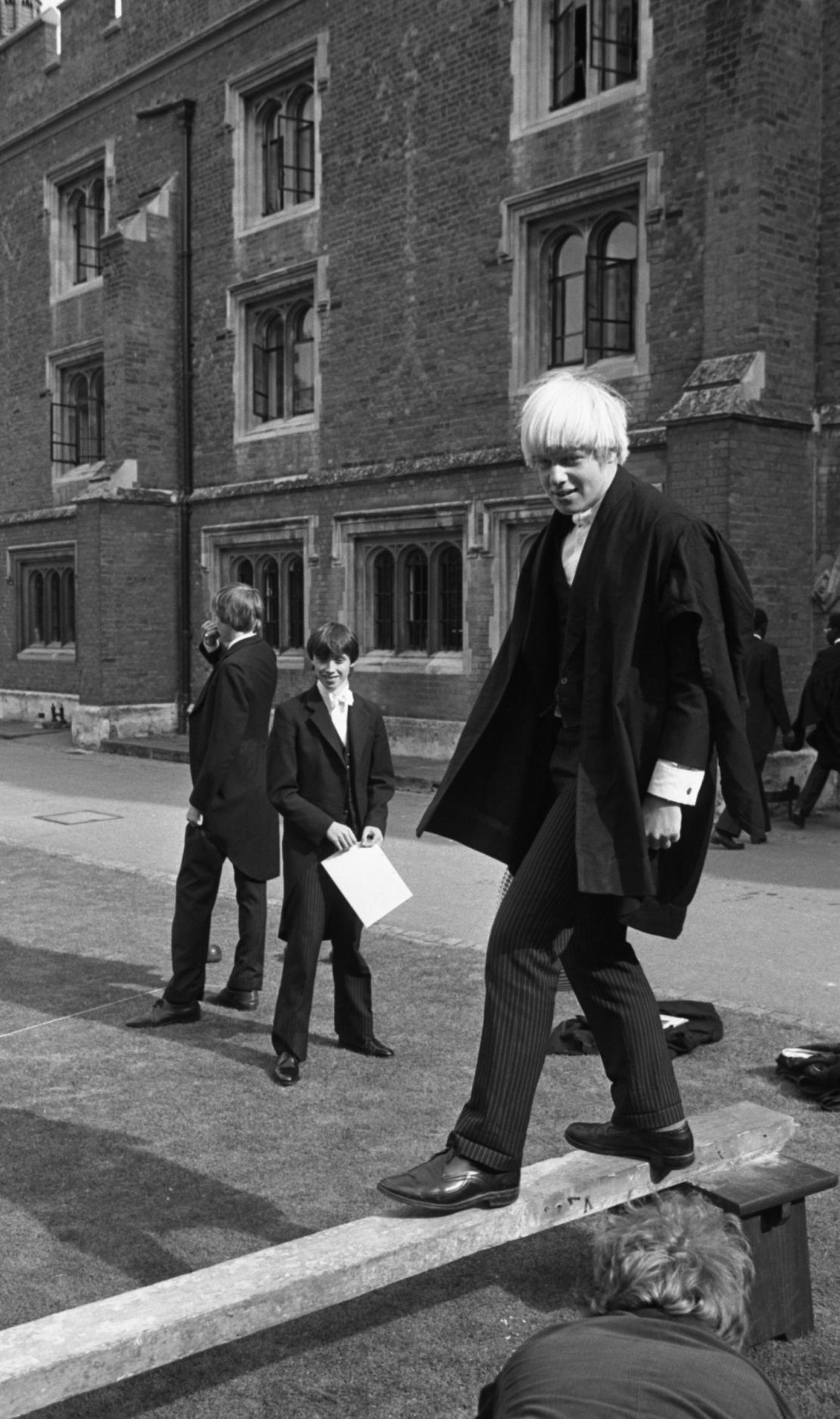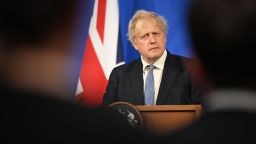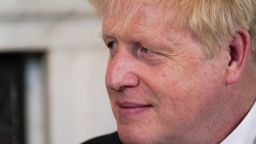Editor’s Note: Rosa Prince is editor of The House magazine. She is the former assistant political editor of The Daily Telegraph and author of the books “Theresa May: The Enigmatic Prime Minister” “and “Comrade Corbyn: A Very Unlikely Coup.” The views expressed in this commentary are her own. View more opinion on CNN.
The final lie that brought down the pyramid of untruths that sustained Boris Johnson’s premiership was a particularly unedifying one.

His claim to be unaware of prior complaints about a member of his government accused of assault was swiftly exposed, leading to first a trickle, then a stampede of ministers from his tainted administration.
Johnson has now resigned – like a fractious child unwilling to leave the party, he was previously reduced to begging for a few more months, weeks, days in office.
Why would a prime minister risk his leadership by appointing an alleged predator to a minor role in his government? Why lie about it when, inevitably, his folly was found out?
The answer is not that the miscreant Christopher Pincher was particularly close or important to Johnson; he wasn’t. Instead, both the inability to abide by the norms which bind everyone else and the casual and foolish falsehood which followed speak to flaws in Johnson’s makeup. Since childhood Johnson seems to have found it easier to reach for a preposterous lie than tell an obvious truth – and has yet to meet a rule he didn’t seek to break.

Dispatched to the elite Eton College at the age of 13, Johnson the schoolboy learned the unnerving confidence that an expensive and exclusive education buys, an asset which lubricated his passage through life. Saying what was convenient rather than true, he rode out exposure by brushing off complaints about his lack of rectitude as inconsequential, with the implication that his accusers were crass or somehow impolite.
And he was likeable; charming. People wanted him to succeed, and were disposed to look the other way when what he said didn’t quite add up. That in turn fed his habit; if people seemed prepared to go along with the pretense, what motivation did he have for sticking to the awkward truth?
By the time he landed at Oxford University as a dilettante undergraduate, he had become a master of the brazen falsehood. Along with the fellow “chums” of his generation, many of whom accompanied him into politics, he joined the Oxford Union, the university’s debating club, where members gleefully argue either side of a debate with scant regard paid to sincerity or belief – the confident assertion of a statement one does not believe constituting success, not weakness.
Life, relationships, a career, everything was a game, one in which you could emerge victorious if only you had enough self-belief.
As a young journalist, Johnson was fired by The Times for inventing a quote from his godfather, the historian Sir Colin Lucas.
Having landed a role with the rival Telegraph despite this, he made his name by filing absurd, because largely untrue, reports from Brussels about the apparent iniquities of the European Union.
He entered politics on a lie – having promised when he took on the editorship of the Spectator magazine that he had no ambitions to become an MP, he did just that.
He lied to his many wives, girlfriends and mistresses. He lied about his children (until recently it was unclear even how many he had).
From his first resignation from the Conservative’s top team in 2004, after lying to then-party leader Michael Howard about his relationship with the journalist Petronella Wyatt, who claimed he paid for her to have an abortion, to his lies this year over the scandal involving parties at Downing Street during lockdown, and all the lies in between too legion to list, Johnson’s career was characterized, accompanied, shaped and defined by lies.
Lying is a habit as natural to him as telling the truth comes easily to most people and, with the confidence of his background, telling bare-faced untruths has never seemed incompatible with serving at the highest level.
Indeed, Johnson seemed almost to relish the game of outwitting his critics by saying whatever it took to get him out of the latest scrape, no matter if that meant committing yet another falsehood that would be exposed down the line.
Even in his last Prime Minister’s Question Time, when all the world was calling him a liar, Johnson couldn’t keep to the truth – asked what his actions would mean to Pincher’s victim, he blustered that he had sacked the MP from his party as soon as he heard of the allegations, a statement which was patently untrue (Pincher was removed from his role in the Whip’s Office when the accusations emerged, but remained a Conservative MP before pressure forced his suspension the following day).
Nor could Johnson be shamed into bowing out gracefully. Like his fellow populist, former US President Donald Trump, Johnson absorbed and exploited the seeming capacity of his party and the public to accept his insistence that black was white, if he made his claim forcefully enough, and as long as the untruth was something they wished was true.
Like his friends from his Oxford days, Johnson’s peers wanted him to succeed in Parliament and as Prime Minister, were willing the web he weaved to stand firm despite their growing realization that the stories did not stand up.
The public, too, wanted to indulge in his philosophy of “cakeism” – that it was possible, in the particularly British phrase – to have their cake and eat it, to achieve Brexit without economic pain, to “level up” disadvantaged areas without raising taxes on everyone else. And they liked him – he was fun, engaging – it felt good to go with the flow and believe him.
It was only when the lies became personal – when it became clear that while they were making enormous personal sacrifices during lockdown, Downing Street was literally partying, and that Johnson had misled them in denying it – that they fell out of love with the schoolboy fibber.
In the end, like Trump, Johnson had virtually to be dragged from office – no bowing out with dignity like his predecessor Theresa May, who quit rather than face further defections from her Cabinet.
He genuinely seemed not to care what his Conservative MP colleagues thought of him, repeatedly citing what he described as a personal, almost presidential mandate from the electorate which won him an impressive majority just two-and-a-half years ago.
No one in his party was unaware of Johnson’s habit of playing fast and loose with the truth when he became Prime Minister three years ago; for them, his ability to win elections and “Get Brexit Done,” as his 2019 election rallying call went, was more important than installing a leader who could be trusted to tell the truth.
The trouble for Johnson was that the fibbing became infectious. In being forced to defend their prime minister over first Partygate and then Pincher, ministers were in recent months put in the insidious position of having to repeat his lies.
And for politicians without Johnson’s particular psychological flaws and foibles, and not least for their own self-preservation, that became too much to stomach.






